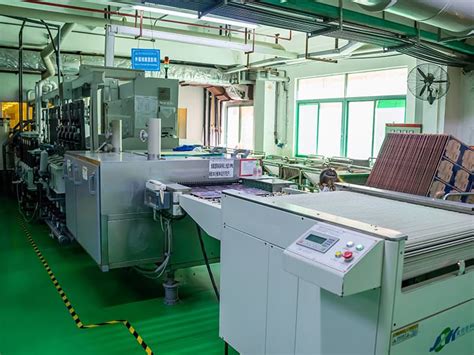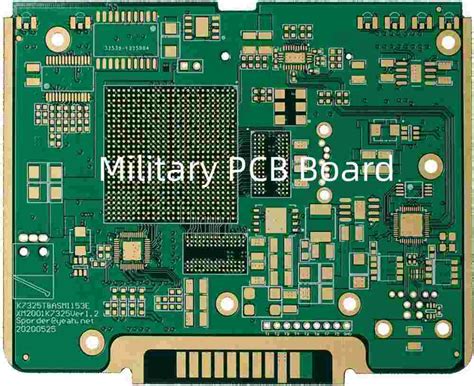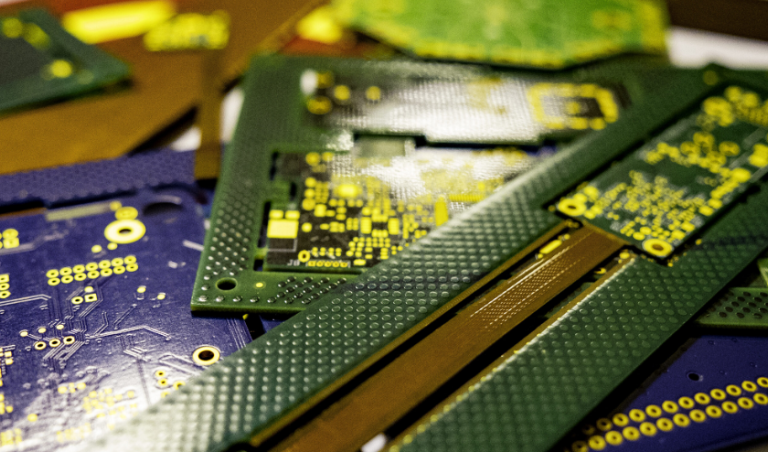Driving Innovation: The Rise of Automotive PCB Manufacturers in the Tech Revolution
Key Takeaways
As the automotive sector undergoes a profound transformation, automotive PCB manufacturers have emerged as pivotal players in driving this evolution. The integration of printed circuit boards (PCBs) into modern vehicles has revolutionized not just how cars operate but also how they interact with the world around them. These manufacturers are essential in producing PCB assembly (PCBA) solutions that contribute to enhanced vehicle performance, boosting efficiency while reducing emissions. With the rapid adoption of electric and autonomous vehicles, there is an escalating demand for high-quality PCBs that meet stringent reliability standards and durability requirements.
The innovations in PCBA go beyond performance enhancement; they include crucial safety features, such as advanced driver-assistance systems (ADAS). By embedding sophisticated circuitry into vehicles, manufacturers ensure that vital safety protocols are met, significantly reducing accident rates and improving overall road safety. Additionally, the rise of connected vehicles has highlighted the importance of connectivity solutions, where automotive PCBs play a fundamental role in enabling seamless communication between vehicles and infrastructure.
However, this burgeoning demand presents unique challenges for automotive PCB manufacturers. As they strive to meet market demands while maintaining quality and cost-effectiveness, navigating supply chain complexities and evolving regulatory landscapes becomes crucial. In this tech-driven era, the synergistic relationship between innovative PCB solutions and the automotive industry will undoubtedly shape the future of mobility. Manufacturers must remain agile and committed to delivering cutting-edge technology to keep pace with rapid industry shifts.
The Intersection of Automotive and Technology: A New Era
The convergence of the automotive and technology sectors marks a transformative shift, driving forward a new era filled with opportunities and challenges. In this setting, automotive PCB manufacturers have emerged as crucial players, underscoring their importance through pcb assembly processes that foster innovation and efficiency. As vehicles become more sophisticated with features such as infotainment systems, advanced driver-assistance systems (ADAS), and electric propulsion, the demand for high-quality PCBA becomes paramount. These manufacturers are not only tasked with producing printed circuit boards (PCBs) that are essential for the operation of various vehicle functions but also ensuring that these components meet rigorous standards for performance and reliability. In an age where connectivity is vital, automotive PCBs have transitioned from simple circuitry to complex systems capable of supporting various applications like vehicle-to-everything (V2X) communication. As electric vehicles (EVs) and autonomous technologies continue to gain momentum, the role of automotive PCB manufacturers in enhancing vehicle performance through innovative pcb assembly techniques will be more critical than ever, redefining the future of mobility in profound ways. This intersection of automotive design and high-tech manufacturing signifies not just a trend but a revolutionary shift in how we perceive transportation and its capabilities in our increasingly digital world.
Understanding the Role of Automotive PCB Manufacturers
In the modern automotive landscape, automotive PCB manufacturers have emerged as pivotal players, integral to the advancement of vehicle technology. Their expertise lies in pcb assembly, which is essential for developing printed circuit boards (PCBs) that power a wide array of vehicle functions. These manufacturers not only provide the necessary components that enable efficiency and functionality but also contribute to the overarching goals of enhancing performance and safety. The intricate designs and high-quality standards upheld by these manufacturers are vital as vehicles evolve to include more sophisticated technologies, like automated driving systems and smart connectivity features.
The capabilities of pcba in automotive applications have transformed how cars operate. For instance, advancements in pcb design have enabled better integration of sensors and microcontrollers, leading to improved responsiveness in vehicle systems. Moreover, with the rise in electric vehicles, there is a growing need for durable and efficient PCBs that can withstand varied operational conditions while ensuring reliability.
“The effectiveness of a vehicle’s electronics largely hinges on the quality of its PCB,” which underscores the critical role manufacturers play in defining performance benchmarks within this industry.
As such, automotive PCB manufacturers are not merely suppliers; they are innovators who drive advancements in smart vehicle technologies, setting new engineering standards. Their contributions are essential for shaping a future where vehicles are safer, smarter, and more connected than ever before.
Innovations in Printed Circuit Boards for Enhanced Vehicle Performance
In the rapidly evolving realm of automotive technology, printed circuit boards (PCBs) play a pivotal role in enhancing not only vehicle performance but also overall efficiency and reliability. These advanced components are witnessing significant innovations that address the increasing demand for smarter, safer, and more sustainable vehicles. A notable advancement is the integration of lightweight materials in pcb assembly, which contributes to improved fuel efficiency and reduced environmental impact. Furthermore, manufacturers are utilizing advanced manufacturing techniques to create more complex PCBA designs, allowing for greater functionality within a limited space.
| Innovation Type | Description | Impact on Vehicle Performance |
|---|---|---|
| Lightweight Materials | Use of materials like aluminum and high-grade polymers | Reduces overall vehicle weight, enhancing fuel efficiency |
| Multi-layer Designs | Complex layering allows for more electronic components | Increases functionality without expanding size |
| Enhanced Thermal Management | Advanced thermal management solutions integrated into PCBs | Optimizes performance by preventing overheating |
| High-Frequency Capabilities | Designed to support advanced communication technologies | Improves connectivity and data processing speeds |
Moreover, features such as smart sensors and real-time data processing capabilities embedded within modern PCBs are crucial for the operation of autonomous driving systems. These innovations not only improve functionality but also ensure that safety standards are met or exceeded. As automotive PCB manufacturers continue to push the boundaries of technology with advanced materials and innovative designs, they pave the way for a future where vehicle performance can reach unprecedented heights. The convergence of mobility solutions with cutting-edge electronics truly exemplifies the transformative potential that these innovations hold for the automotive industry.
Safety Features of Modern Vehicles: The PCB Contribution
In the landscape of modern vehicles, safety features have transcended traditional mechanisms and increasingly rely on sophisticated electronic systems. At the core of these advancements is the printed circuit board (PCB) technology, specifically through pcb assembly techniques that enhance functionality and reliability. Automotive PCB manufacturers are pivotal in developing these systems, integrating complex components designed to monitor vehicle dynamics and driver behavior effectively. For instance, the deployment of advanced driver-assistance systems (ADAS) heavily depends on high-quality PCBA solutions that ensure precision in sensors responsible for collision avoidance and lane-keeping assistance. These innovations not only contribute to an improved driving experience but also significantly enhance passenger safety by reducing the likelihood of accidents. As vehicles evolve into smarter entities with increased automation features, the role of automotive PCB manufacturing becomes ever more critical, driving forward their commitment to safety, reliability, and continued technological advancement in mobility solutions.
Connectivity Solutions: How PCBs Power Smart Vehicles
The integration of printed circuit boards (PCBs) in modern vehicles has revolutionized the way automobiles connect and communicate. As vehicles evolve into smart systems, the demand for sophisticated pcb assembly techniques is on the rise. These PCBA processes not only enhance vehicle functionality but also enable features such as real-time data exchange, navigation, and in-car entertainment systems. With the advent of electric and autonomous vehicles, automotive PCB manufacturers are tasked with producing high-quality PCBs that support advanced connectivity solutions. For instance, the ability to collect and transmit data regarding vehicle performance contributes significantly to enhancing safety features, ensuring that drivers are informed and protected against potential hazards. Additionally, PCBs facilitate critical communication between various components of a vehicle, allowing for seamless integration of technology that makes driving not only more efficient but also safer. This growing reliance on innovative PCB designs is evident in the development of emerging technologies such as Vehicle-to-Everything (V2X) communication, which relies heavily on reliable pcb assembly methods to ensure enhanced connectivity and response times in dynamic driving environments. Consequently, automotive PCB manufacturers play a pivotal role in shaping the future of mobility by powering smart vehicles and setting new standards for connectivity within the automotive sector.
The Surge in Demand for High-Quality PCBs in Electric Vehicles
The automotive industry is witnessing an unprecedented transformation, primarily driven by the growing shift towards electric vehicles (EVs). As these vehicles become increasingly prevalent, the need for high-quality printed circuit boards (PCBs) has surged dramatically. Automotive PCB manufacturers are now tasked with meeting the rigorous demands of modern EVs, where pcb assembly plays a pivotal role in delivering reliable performance and functionality. With advanced features such as regenerative braking, battery management systems, and sophisticated infotainment units, the reliance on quality printed circuit boards has never been more critical. The complexity of electric vehicle design necessitates that manufacturers focus on PCBA processes that ensure durability and efficiency in function. Moreover, as EVs often utilize cutting-edge technology to provide enhanced features for safety and driver assistance, the need for precision-engineered PCBs tailored specifically for these applications is paramount. Consequently, this surge in demand not only highlights the integral part that PCB manufacturers play but also underscores their influence on the future of mobility and sustainability within the automotive sector. This evolution encapsulates a broader trend where innovation is at the heart of transportation advancements, leading to a robust market eager to adopt the innovations proposed by automotive PCB manufacturers.
Market Trends Shaping the Future of Automotive PCB Manufacturing
The landscape of the automotive industry is evolving rapidly, and with it, automotive PCB manufacturers are navigating a complex array of emerging trends that are set to redefine mobility. One significant shift is the increasing integration of pcb assembly processes with automation and intelligent manufacturing techniques. This evolution enhances precision and reduces production times, catering to the growing demand for high-performance PCBA in modern vehicles. Furthermore, as vehicles become more connected and reliant on advanced technologies, the need for more sophisticated printed circuit boards grows exponentially. Manufacturers are now focusing on creating lightweight, compact, and efficient PCBs that can support intricate functionalities like anti-collision systems, infotainment interfaces, and autonomous driving capabilities.
Additionally, the automotive sector is witnessing a surge in electric vehicle (EV) adoption which requires specially designed pcba solutions tailored to withstand higher energy demands while maintaining safety standards. This shift not only accelerates research and development efforts among PCB manufacturers but also drives collaboration with tech firms to innovate smarter manufacturing practices. As competition stiffens within this ever-evolving market, staying ahead means acknowledging trends like sustainability—where eco-friendly materials and processes are taking precedence in manufacturing practices. Ultimately, these market trends signal a transformative period for automotive PCB manufacturers as they adapt to technological advancements that will shape the future of transportation solutions on our roads.
Overcoming Challenges in the Evolving Landscape of Mobility
As the automotive industry undergoes a significant transformation, automotive PCB manufacturers face numerous challenges that require innovative solutions. The rapid advancement of electric and autonomous vehicles stresses the need for high-quality PCBs that support complex functionalities. Manufacturers must adapt their pcb assembly processes to accommodate cutting-edge technologies while ensuring reliability and performance. Additionally, they confront supply chain issues that affect the procurement of raw materials essential for pcba production, as well as an increasing demand for sustainability in manufacturing practices. Moreover, maintaining compliance with stringent safety standards presents another hurdle. In this dynamic environment, staying ahead necessitates investment in advanced manufacturing techniques and continuous innovation to enhance production efficiency. As automotive PCB manufacturers work diligently to overcome these challenges, their contributions remain pivotal in driving forward a new era of connectivity and enhanced performance in vehicles. The intersection of technology and mobility underscores the importance of these manufacturers as they strive not only to meet current demands but also to anticipate future trends in the automotive landscape.
Conclusion
As we navigate the intricate landscape of modern mobility, the significance of automotive PCB manufacturers cannot be overstated. These manufacturers are vital in producing printed circuit boards (PCBs) that enhance vehicle performance, safety, and connectivity. With the emergence of electric vehicles (EVs) and autonomous driving technologies, the demand for high-quality and reliable PCB assembly has reached unprecedented levels. This surge requires manufacturers to not only innovate but also adapt to rapidly changing market needs. The evolution in pcba techniques has facilitated the integration of advanced features such as real-time data processing and connectivity options that support the Internet of Things (IoT) within vehicles. As they confront various challenges—from supply chain disruptions to maintaining manufacturing efficiency—automotive PCB manufacturers are poised to play a crucial role in driving forward a revolutionary era of smart transportation. Their ability to provide cutting-edge solutions will undoubtedly shape the future blueprint of automotive engineering and redefine standards across the industry.
FAQs
As we navigate through the complexities of modern automotive innovation, it’s crucial to understand the foundational role of pcb assembly and its impact on vehicle functionality. PCB manufacturers are not just suppliers; they are integral partners in developing cutting-edge technology that enhances vehicle performance, safety, and connectivity. The process of pcba (printed circuit board assembly) ensures that electronic components are seamlessly integrated into vehicles, facilitating the sophisticated systems that control everything from navigation to safety features. As electric and autonomous vehicles become more prevalent, the need for reliable, high-quality PCBs is more pressing than ever. Manufacturers must stay at the forefront of technological advancements while addressing challenges such as supply chain disruptions and meeting stringent regulatory standards. Understanding these dynamics is essential for anyone interested in the future of mobility and automotive engineering.







